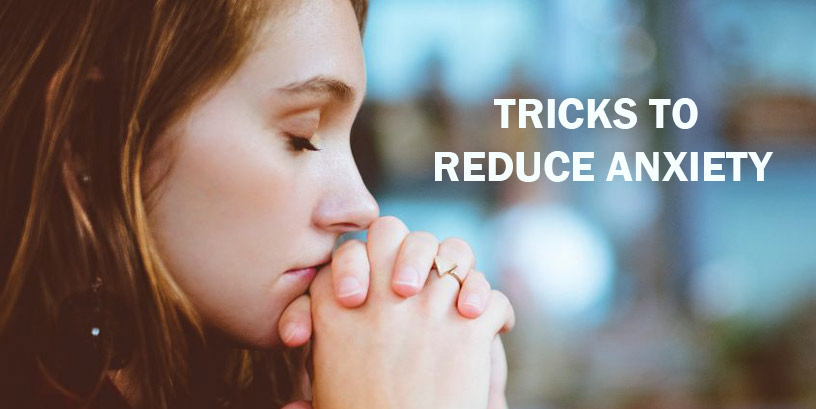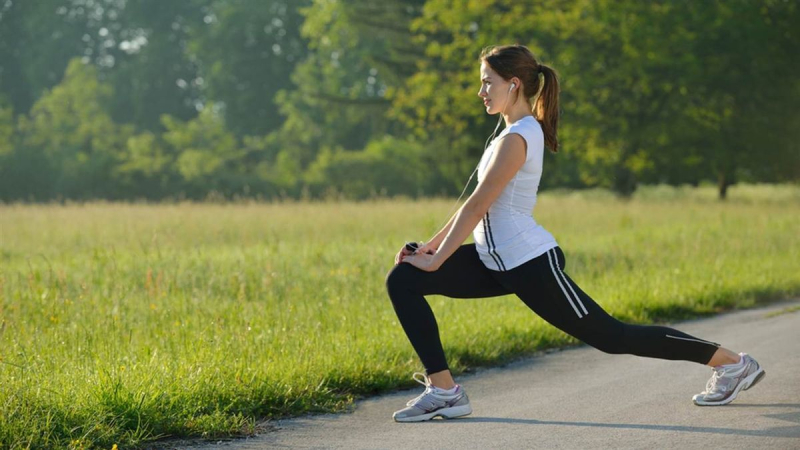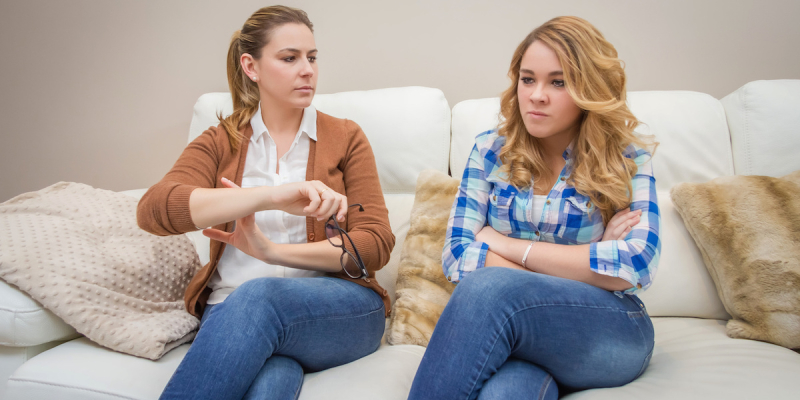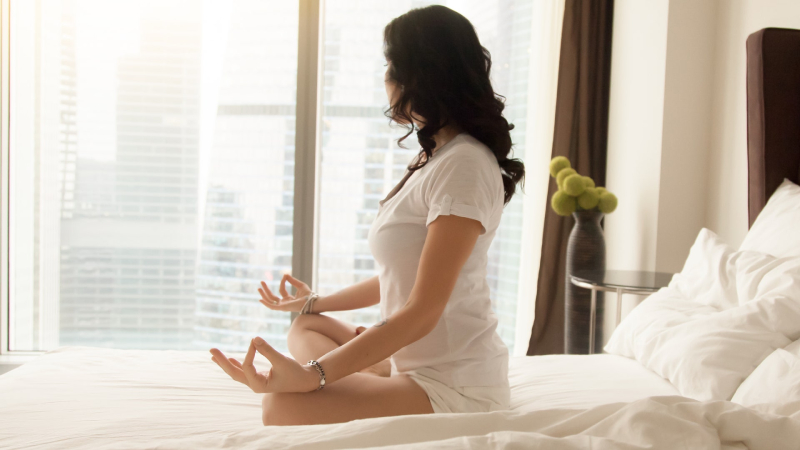
Table of Contents
Changing lifestyles, the pressure to meet work deadlines, and a social disconnect have led to many mental health issues. Anxiety is one of them; more than 18 percent of people are affected by anxiety disorders every year in the United States alone.
It’s normal to get nervous and anxious in an important event, but anxiety can be counterproductive if it is not checked on time, leading to a daily struggle for you.
Anxiety disorders include intense worrying that is not in your control, called Generalized Anxiety Disorder (GAD). Signs of anxiety disorders also include sudden episodes of fear followed by severe heartbeat, shaking, and sweating, called Panic Disorder. Health conditions like Active Overthyroid can also lead to anxiety.
You can adopt Anxiety Management to help you overcome your fear and live life to its fullest.
Fortunately, there are many tips and strategies available to reduce anxiety in the long term, like medication or talk therapy. Consider taking a well-balanced diet, limiting alcohol and caffeine intake, and socializing to minimize stress and anxiety.
By adopting these ten mindfulness tricks, you can keep a check on your stress and anxiety and regain control over your racing thoughts.
Take a deep breath

You can reduce anxiety by taking a long deep breath. By developing breathing habits over time, you can regain control over stress. Here’s how you can do it:
- Focus on your breathing pattern by keeping your eyes closed. Breathe naturally, preferably through the nostrils. Deep diaphragmatic breathing helps you relax and stimulate your body’s natural response to anxiety.
- Chest breathing can create an imbalance between carbon dioxide and oxygen in the body, leading to muscle tension, dizziness, increased heart rate, and other physical sensations associated with anxiety. It reduces oxygen levels in the blood, which signals a stress response to the brain and contributes to panic. Instead, inhale slowly for a count of four, filling your belly first and then your chest. After that, hold your breath for a count of four, then exhale for a count of four. Repeat this several times.
- If you start losing grip over your thoughts and your mind begins running after different ideas, return and immediately focus on breathing. Take a deep breath and forget the rest. You might start to feel that the breathing process is cumbersome, but it makes your mind more relaxed in reality.
- Please don’t wait for the right time to start practicing belly breathing because the sooner you make it a habit, the quicker you will overpower anxiety by feeling relaxed. Repeat the breathing process several times until your mind settles down out of various thoughts.
Exercise Regularly

An old saying says, ”a healthy mind lives in a healthy body,” now the researchers’ study has proved that the individuals who exercise regularly have a 25 percent lesser chance of developing an anxiety disorder within five years. An average adult should get between 2 hours and 30 minutes to 5 hours of moderate to intense workout per week. Exercise is nature’s very own anti-anxiety remedy. It helps the body and mind to heal on their own. It enables the body to release anti-stress hormones or endorphins, which are great for boosting your mood and getting you a good night’s sleep, both of which are essential to reduce stress and anxiety.
Stop being a Rebel

Accept the fact that, like any other feeling, anxiety is just a feeling. Whether you have inherited the genes of stress from your parents or developed it out of your lifestyle, the sooner you accept that there are some feelings and emotions that you can’t control, the better you will handle tense situations.
Acceptance doesn’t mean that you give up and nod to the misery brought by the anxiety; instead, it helps you draw more constructive solutions to your life aspects, which you can control.
‘Go Green’

One of the best anxiety home remedies which you can adopt is eating healthy and natural foods. Avoid processed foods as much as possible. Your diet can affect anxiety. Begin your morning with a glass of green juice and get ahead of the stress.
Plant-based foods filled with minerals and magnesium’s natural goodness can help you tackle stress and anxiety effectively. Foods such as oats, almonds, cashew nuts, hemp, and chia seeds are good magnesium sources. Bananas, sweet potatoes, and dark leafy greens are also abundant in magnesium.
Say no to caffeine

Caffeine contributes to people’s feelings of anxiety and insomnia, irritability, and heart palpitations. People with chronic or persistent stress should consider caffeine as a foe rather than a friend.
Sugar can stimulate adrenaline release, which causes increased blood circulation, breathing, and muscle stress. Caffeine may worsen anxiety disorder because it reduces the feel-good hormone’s secretion, i.e., ”serotonin” in the body.
Who doesn’t like coffee when feeling sleepy but remember that coffee is also one of the most common caffeine sources. Other sources of caffeine include chocolates, breakfast cereals, and some over-the-counter pain medications.
Get a good night’s sleep.

Insomnia can lead to anxiety; make sure to sleep only when you feel tired, and don’t do anything that distracts your mind and causes sleep deprivation when you are in your bed.
Sleep allows the body to repair the damage caused by stress and rejuvenate the mind. Make a sleeping pattern by going to bed at the same time each day. Try avoiding using phones and watching TV after turning off the lights.
Meditation and Yoga

Meditation brings calmness and mindfulness by relieving the mind of stress and anxiety. Try to meditate for at least 30 minutes daily to help alleviate the symptoms of anxiety.
Yoga is another remedy that helps relieve anxiety by maintaining blood pressure, regulating the heart rate, and decreasing cortisol release, a fight-or-flight hormone in the body. It also reduces the levels of molecules called cytokines in the blood, which the immune system releases in response to stress.
Laugh out loud

Laughing is the natural course of action to reduce stress and anxiety. It is a well-known fact that laughing induces the release of the feel-good hormone endorphin in the body, stimulating the heart, muscles, and lungs.
You can begin your laughter ride by watching your favorite comedian or movies.
Follow the opposites

Avoid doing things that put you in a stressful situation. For example, if you are watching the news, and suddenly something comes up, which gives you stress, quickly change the channel and watch something to lighten your mood. Similarly, if you feel stressed out before going for a power-point presentation, tell your mind that it’s going to be alright.
Share your feelings

You can share your feelings of stress by socializing; also, getting an animal companion like a dog or a cat is a great stress buster as you can take your little friend for a walk or spend time grooming him or her.
Final words
While the tricks mentioned above will help reduce stress but don’t shy away from taking professional help in severe anxiety and panic attacks.
Written by admin

Coupon Code
Use Coupon CodeSALE10
Product Categories
- Buy Adderall Online
- Buy Adipex Online
- Buy Alprazolam Online
- Buy Ambien Online
- Buy Ativan Online
- Buy Carisoprodol Online
- Buy Clonazepam Online
- Buy Codeine Online
- Buy Darvocet Online
- Buy Demerol Online
- Buy Diazepam Online
- Buy Dilaudid Online
- Buy Fioricet online
- Buy Gabapentin Online
- Buy Hydrocodone Online
- Buy Hydromorphone Online
- Buy Klonopin Online
- Buy Lexapro Online
- Buy Lorazepam Online
- Buy Lorcet Online
- Buy Lortab Online
- Buy Meridia Online
- Buy Methadone Online
- Buy Modafinil Online
- Buy Norco Online
- Buy Opana ER Online
- Buy Oxycodone Online
- Buy Oxycontin Online
- Buy Percocet Online
- Buy Phentermine Online
- Buy Roxicodone Online
- Buy Soma Online
- Buy Suboxone Online
- Buy Subutex Online
- Buy Tapentadol Online
- Buy Tramadol Online
- Buy Valium Online
- Buy Viagra Online
- Buy Vicodin Online
- Buy Xanax Online
- Buy Zolpidem Online

Leave a Reply